The Last Voice of Ubykh: Remembering Tevfik Esenç 32 Years On

Tevfik Esenç in Istanbul, 1974. Photograph by George Hewitt
SUKHUM / AQW'A ― Ubykh is an extinct Northwest Caucasian language once spoken by the Ubykh people. It belongs to the Northwest Caucasian language family, which comprises three branches: Abkhaz-Abaza, Circassian, and Ubykh. This linguistic family is named after the geographical region where speakers of these languages lived compactly until 1864, marking the end of the Russo-Caucasian War.
Tevfik Esenç, the last native speaker of Ubykh, passed away on 7th October 1992 in Türkiye. With his death, the Ubykh language became extinct, marking the end of an era for the Ubykh people and their cultural heritage.
Until 1864, the Ubykh people resided along the eastern shore of the Black Sea near Sochi, northwest of Abkhazia. The population of the Ubykhs during the mid-19th century is difficult to estimate, though some Russian sources suggest it may have been around 40,000 to 50,000.
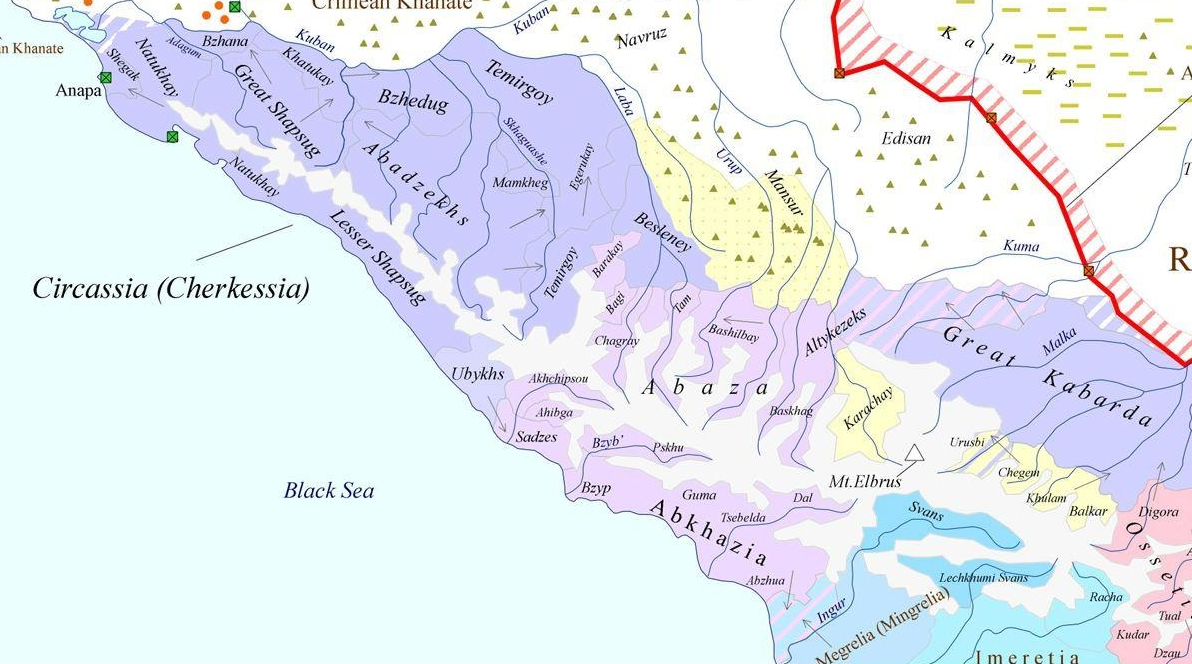
Modern linguistic mapping of Western Caucasus tribal composition 1774-1780 | Atlas of the Ethno-Political History of the Caucasus, by Arthur Tsutsiev
By the end of February 1864, during the final stages of the Russian-Caucasus War, the Ubykhs found themselves surrounded by Russian forces. On 6th March 1864, they ceased their resistance, and the Ubykh elders initiated armistice talks with the Russians. In accordance with Tsar Alexander II's wishes, the Russians offered two options:
“Those wishing to go to Turkey should assemble in encampments on the sea coast at the mouths of the rivers Shakhe, Vardane, and Sochi, where Turkish ships may come. Those who wish to join us should immediately move to the Kuban, where land will be allotted to them.”
By March 1864, with their villages in flames, approximately 30,000 Ubykhs embarked on a journey to the coast, seeking refuge in the Ottoman Empire (now Türkiye). A small number of families were relocated to the Kuban region and later settled in the Kostroma province. Other Northwest Caucasian peoples suffered similar displacement. On 21st May 1864, Grand Duke Michael, Tsar's governor-general in the Caucasus, proclaimed “the end of the Caucasian war.”
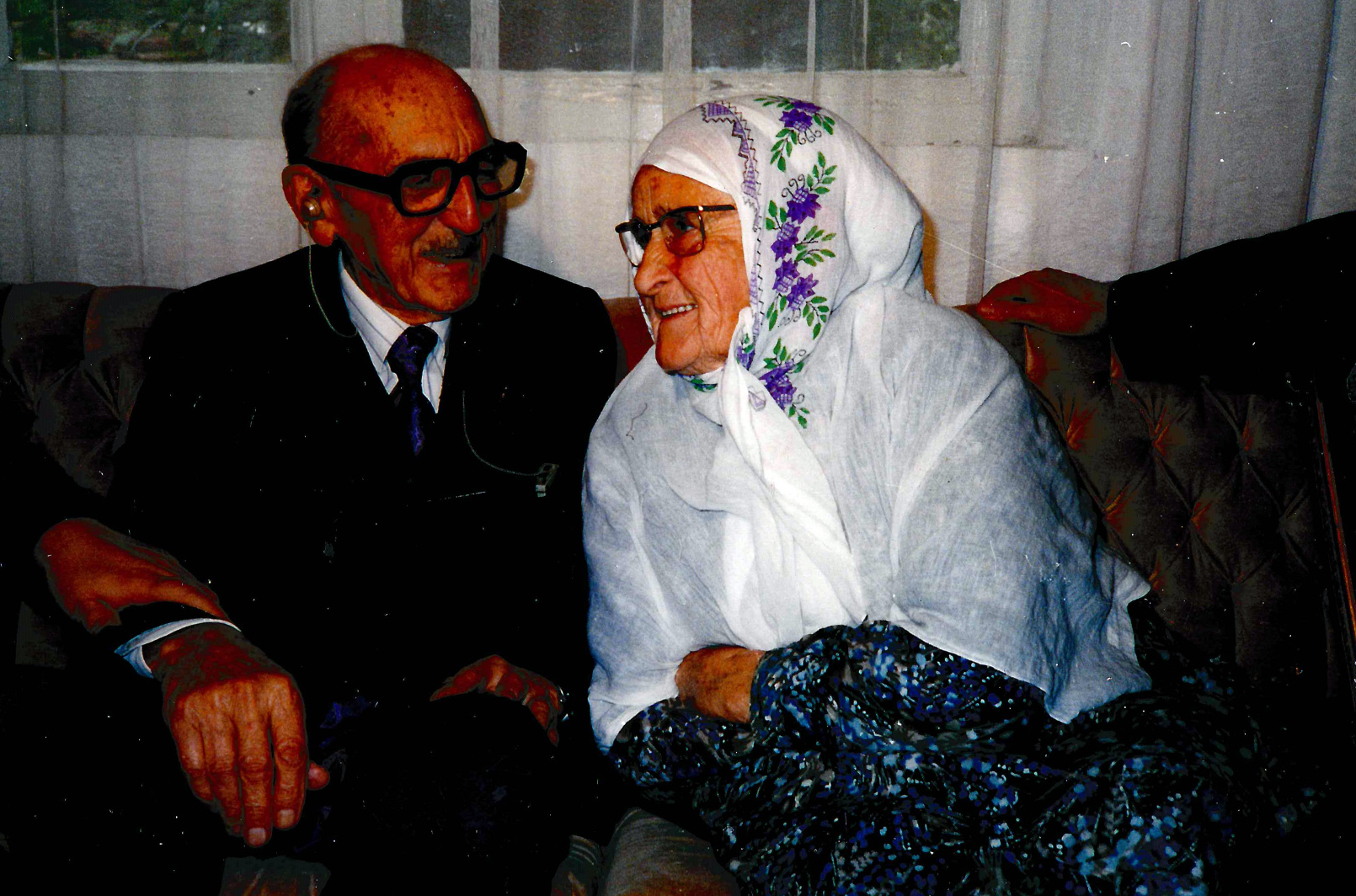
Tevfik Esenç with his wife (1990).
Tevfik Esenç was born four decades after the Ubykh expulsion, in the village of Hacı Osman in Türkiye. Raised by his Ubykh-speaking grandparents, he later served as the muhtar (village mayor) before joining the civil service in Istanbul. Esenç worked extensively with French linguist Georges Dumézil to document and preserve the Ubykh language.
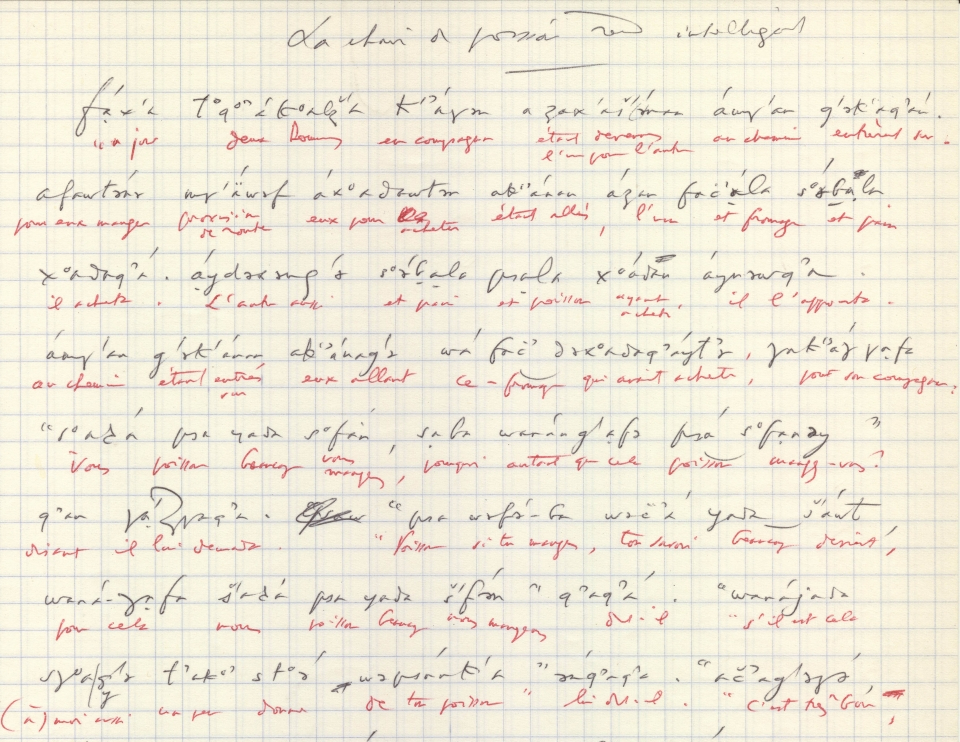
Manuscript transcription by Georges Dumézil of an Ubykh narrative recited by Tevfik Esenç.
+ The Ubykh Verb: Descriptive and Comparative Studies, by Georges Dumézil
+ Ubykhs, by T. Tatlok - Caucasian Review, Vol. 7 (1958)
+ Ubykh Personal Names, by Viacheslav Chirikba
+ Viacheslav Chirikba. "The Ubykh People Were in Practice Consumed in the Flames of the Fight for Freedom"
Esenç possessed an extraordinary memory and a deep understanding of linguistics, quickly recognising the efforts of scholars such as George Hewitt, Georges Charachidzé, and Viacheslav Chirikba. Throughout his life, he witnessed the gradual decline of the Ubykh language. By the 1980s, he was the last person with a full command of the language, though a few elders could recall certain phrases.
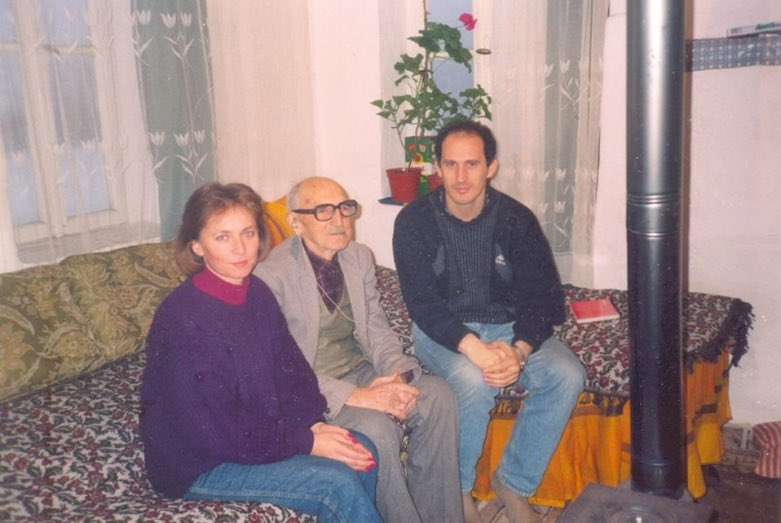
Meral Çare, Tevfik Esenç, and Viacheslav Chirikba in the village of Hacıosman.
Ubykh is renowned for its impressive consonant inventory, boasting 81 consonant phonemes—one of the largest collections of consonants in any language, rivalled only by the Khoisan languages of southern Africa. The language distinguishes between several types of affricates and fricatives and has an uneven ratio of consonants to vowels. As linguist John Colarusso remarked, "Any rigorous account of human phonetic perceptual capacity will have to consider this precious marvel, Ubykh."
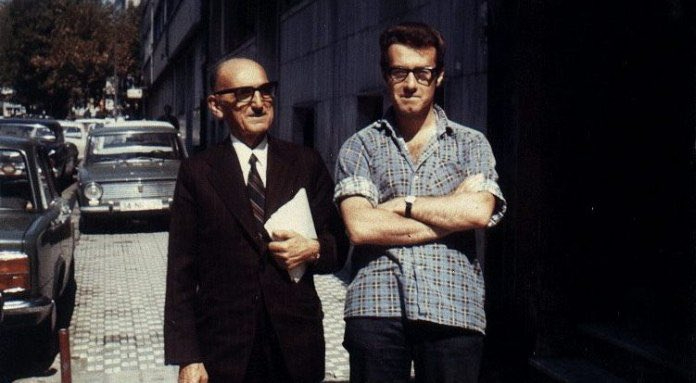
Tevfik Esenç (left) and George Hewitt, Istanbul 1974
In 1974, George Hewitt, Emeritus Professor of Caucasian languages at the School of Oriental and African Studies (SOAS) and a fellow of the British Academy, spent six weeks in Türkiye, where he made recordings of Circassian dialects and Ubykh. His recordings, primarily with Tevfik Esenç in Istanbul and other elderly speakers in Hacı Osman village, provide a valuable linguistic record of Ubykh. Some of these recordings can still be accessed today.
Tevfik Esenç passed away on 7th October 1992, at the age of 88. In his final years, he composed the inscription he wished to have on his white marble tombstone, which now stands as a poignant reminder of the lost language he once spoke:
“This is the grave of Tevfik Esenç. He was the last person able to speak the language known as Ubykh.”